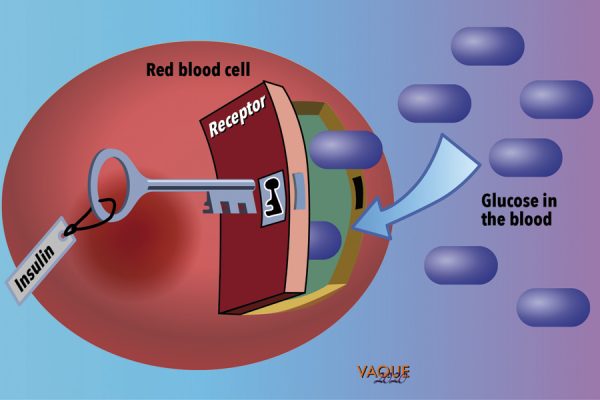Understanding the Mechanism of PUTTING ON FAT
This is a very common phenomenon that affects many people. We’ve been watching it go on now for a very long time, but it would seem like we’re not willing to do anything to avoid it, when it’s actually quite easy to avoid.

Overweight –not obesity, but overweight– is a problem that affects practically the gross of the Western world’s population in the 21st century. Many of you might think it’s only a question of basic maths, that is: you consume more calories than you burn. And it’s true, in part, just as it is true that a large part of the Western population have what you would call a sedentary behaviour: they don’t engage in physical activity in their free time, and most of their jobs involve very little of it, if any at all (with notable exceptions, of course).
Sedentarism is an important factor that can lead to overweight, but not entirely by itself. And here is where I daresay that there is only one true responsible for the Western overweight issue. Let’s consider the following facts:
- The growing amount of cardiovascular diseases related to wrong eating (combined with lack of exercise)
- The exponential growth in cases of type 2 diabetes (acquired diabetes).
- More and more cases of malaise and discomfort directly linked to diseases involving unstable insulin levels.All of these lead back to one single culprit: refined carbs. That is to say: all food products made on an industrial level by large food companies who base their food production on the manipulation of plant carbs the likes of grains, corn and cereals.
But, let’s go back to basics. Every living entity, including human beings, has two basic functions it has to carry out in order to stay alive, and those are:
- an energetic function (the living entity has to consume energy)
- a plasticity function (the body tissues have to carry out a daily cell renewal process).
If you consume foods until the point when you satisfy that energy output, your weight won’t vary (normocaloric diet).
If you consume more foods than your energy output, your body will tend to keep that excess of energy in the form of body fat. (hypercaloric diet).
If you eat less than your energy output, your body will tend to compensate that energy deficit with the consumption of those body fat reserves (hipocaloric diet).
No more, no less.
And from this starting point, we can discuss the 99 ways to get rid of body fat or gain muscle mass. But the basic concepts will remain the aforementioned.
Many of you will argue that a hypercaloric diet based mainly on refined carbs and one based on fatty acids and protein, are not the same thing. Probably, the best answer to this question lays within a hormone: insulin.
Insulin is a hormone secreted by the pancreas and it is the body’s natural answer to an increase in the circulation of glucose (sugar) in your blood, and even to an increase in the pool of amino acids in your blood. Its function is to store any element that there is a lot of in your blood, not only the macronutrients that liberates it into the blood in the first place, that is: not only the glucose that is in your blood as a direct consequence of the intake of carbs. It also tells the body to turn any excess of glucose into fat, which will, at the same time, be stored by the liberation of insulin.
Everything seems to indicate that the intake of refined or artificial carbs creates the conditions necessary for the body to secrete abundant amounts of insulin.
Many diets nowadays, recommended for sports performers and people with sedentary lifestyles, aim at reducing the insulin liberated into the blood to a minimum at all costs, so that the possibility of storing fat in the adipocytes (the cells that are provided for this) is reduced to an absolute minimum or disappears altogether. But they do it at the cost of sacrificing absolutely EVERY kind of carbohydrate in their diets, alleging supposed evolutionary conditions of the human being?? That strategy might work for them, but it doesn’t seem like it would for bodybuilders… though that’s another story.
